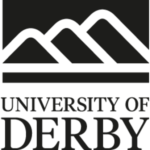Overview
Spaceflight Imager Test Engineer (Milton Keynes, ENG, GB, MK7 6AA)
Salary: £46049.00
Change your career, change lives
The Open University is the UK’s largest university, a world leader in flexible part-time education combining a mission to widen access to higher education with research excellence, transforming lives through education. Find out more about us and our mission by watching this short video (you will be taken to YouTube by clicking this link).
About the Role
The role holder will join the Atmospheric Research and Space Exploration group at the Open University (OU), a research group consisting of over 30 dynamic and diverse people led by the Professor of Planetary Science, working towards a common purpose of exploring the Mars, Venus and Jupiter using spaceflight instrumentation, and analysing the returned data to better understand the universe we live in. The role will contribute to the Faculty’s research objectives by having responsibility for the design, testing and analysis of testing of imaging instrumentation and detector devices in the context of future spaceflight instrumentation. The OU has a leading role in multiple upcoming and potential future spaceflight imaging instruments, destined to explore the Moon, Mars, Venus and Jupiter. This role will involve the characterisation of spaceflight optical and detector technology, achieved through the design and implementation of experiments in the laboratory and at external facilities to investigate the performance of various optical and detector technologies for application in major future space exploration activities such as the EnVision mission to Venus, the JUICE mission to the Jupiter system and high resolution imagers for the Mars and Moon (HiRIME). Appropriate training in detector characterisation techniques will be provided for applicants, where needed.
The role holder will have the opportunity to interact with the staff at the European Space Agency, NASA, as well as various US and European academic and industrial partners. Within the OU, the role holder will interact between the Atmospheric Research and Space Exploration group and the Centre for Electronic Imaging to enable new collaborative spaceflight instrumentation for the future.
Key Responsibilities
- Design and implement laboratory optical and cryogenic test setups for imaging and spectroscopy instrumentation testing;
- Perform laboratory characterisation of CMOS and hybrid image sensors;
- Gain experience in handling spacecraft data;
- Work as an integral part of the spaceflight projects team to develop hardware and software in support of existing and future imager instrumentation;
- Analyse optical and detector test results and write reports and presentations;
- Create and maintain technical documentation relating to testing and analysis;
- Attend regular project meetings, workshops and international conferences, reporting progress verbally and in written form;
- Work with the Professor of Planetary Science and Senior Spaceflight Project Officer to contribute material and inputs as required for reports, publications, project proposals and funding applications;
- Promote knowledge and technology exchange with Teledyne e2v and other key project collaborators.
About You
Essential:
- МSc or equivalent qualification in physics, electronic engineering or a closely-related related subject;
- Good understanding of semiconductor physics and image sensor (or equivalent) operation;
- Significant experience of working in a laboratory environment;
- Proficiency with data acquisition systems and customizing data processing code;
- Experience in data analysis using Python, MatLab, LabVIEW or equivalent.
- Good problem solving and analytical skills, demonstrated rigorous approach to work and attention to detail;
- Good oral and written communication with the ability to communicate research results effectively as demonstrated by a record of report writing;
- The ability to work as part of a team and under your own initiative.
Desirable:
- PhD in physics, electronic engineering or a closely-related related subject;
- Knowledge of optics and optical test setups;
- Experience in software development using Python, MatLab, LabVIEW or equivalent;
- Experience characterising Complementary Metal-Oxide-Semiconductor (CMOS) or Charge-coupled device (CCD) image sensors;
- Experience working with vacuum systems and radiation;
- Experience with working with infrared and cryogenic systems
Support with your application
If you have any questions, or need support or adjustments relating to your application, the recruitment process, or the role, please contact us on 01908 541111 or email careers@open.ac.uk quoting the advert reference number.
What's in it for you?
At The Open University, we offer a range of benefits to recognise and reward great work, alongside policies and flexible working that contribute towards a great work life balance. Get all the details of what benefits we offer by visiting our Staff Benefits page (clicking this link will open a new window).
Flexible working
We are open to discussions about flexible working. Whether it’s a job share, part time, compressed hours or another working arrangement. Please reach out to us to discuss what works best for you.
Please note: this is a lab based role, and so the successful candidate will be required to be on site in Milton Keynes 5 days per week.
Next steps in the Recruitment process
Interviews are likely to take place on the 18th & 19th November 2025.
Early closing date notification
We may close this job advert earlier than the published closing date where a satisfactory number of applications are received. We would therefore encourage early applications.
How to apply
To apply for this role please submit the following document(s):
- CV
- Supporting statement of no more than 1000 words outlining how you meet the essential criteria for this role.
You can view your progress and application communications when you are logged into our recruitment system. Please check your spam/junk folders if you do not receive associated email updates.

















